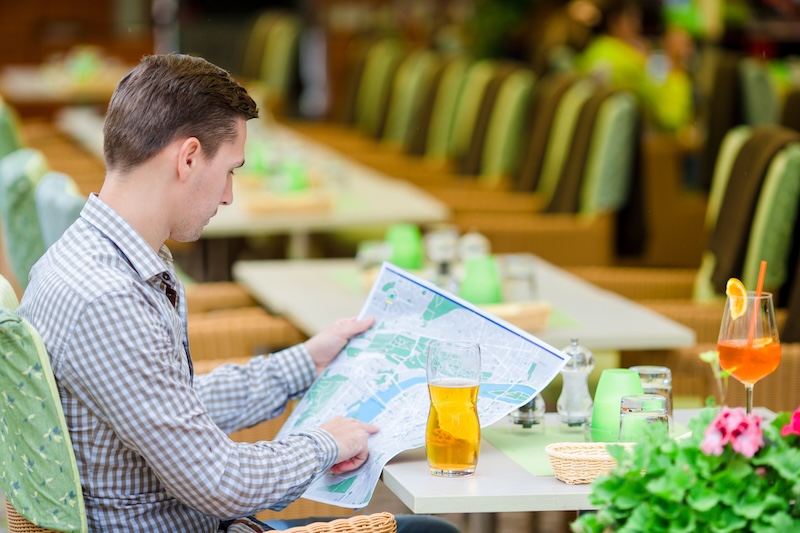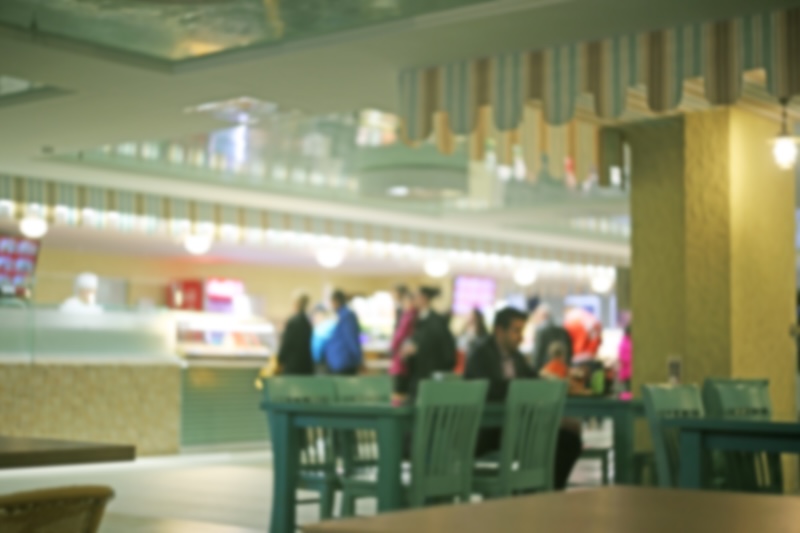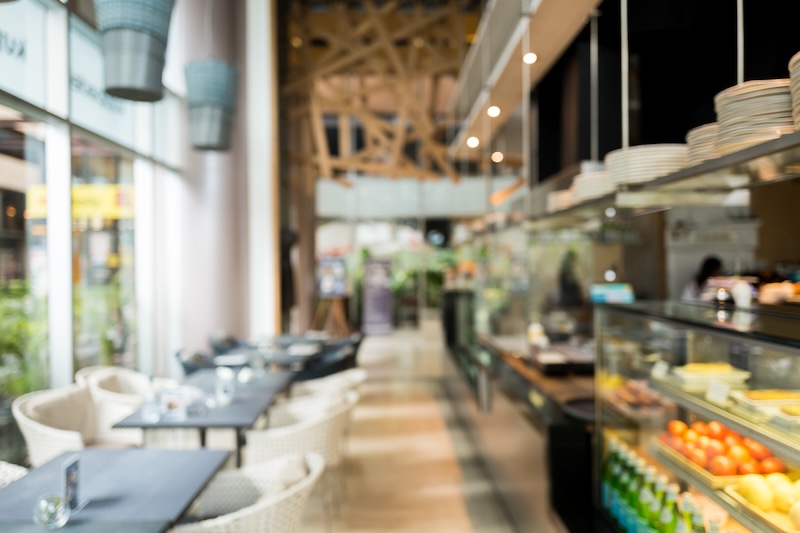Freeway service areas on France's roads are no longer just places to take a break. Today, they offer a wide range of catering services, often managed under concession contracts. For travelers, these places must combine speed, quality and comfort. For restaurateurs, they represent both strategic and demanding terrain: high perceived prices, customers present out of necessity, regulatory constraints, but also opportunities to innovate and stand out from the crowd.
Are you wondering how to take advantage of this specific market, optimize your offer and attract passing customers while complying with the required standards? This article is a step-by-step guide to the world of freeway concession catering.
Concession restoration: definition and legal framework
The role of motorway concessions in France
A motorway concession is a contract between the French government and a private operator. The operator manages a section of freeway and associated services, including restaurants. These contracts define the duration, obligations and fees to be paid, and impose strict quality and safety regulations.
For a restaurateur, this means adapting the restaurant's organization and offering to dealer standards, while remaining profitable.
The difference between public service concessions and other models
On the freeway, not all restaurants operate in the same way. There are two main models:
- Public service concession :
- The operator (or restaurateur) must ensure that all users have access to services at all times,
- Prices, quality and supply are governed by the concession contract,
- For the restaurateur, this means constraints, but also security: the flow of customers is virtually guaranteed, as travelers have no alternative.
- The operator (or restaurateur) must ensure that all users have access to services at all times,
- Commercial concession or free operation :
- Here, the restaurateur has more freedom over prices, the menu and day-to-day management,
- But he must attract customers through his reputation or promotions, which can be more risky, especially if the area is not very busy. He must also manage any competition and optimize his offer to maximize sales.
- Here, the restaurateur has more freedom over prices, the menu and day-to-day management,
Freeway restaurant management
Restaurants can be operated directly by the concessionaire or via freeway franchises, such as McDonald's, Burger King or other local brands. The choice of model influences not only staff management, but also processes and the menu on offer. A franchise allows you to capitalize on a recognized brand, while an independent restaurant can seduce with its authenticity and local products.
👉 To find out more : Becoming a franchisee in 2025: 8 key steps to a successful project
Rest areas: a strategic location for catering
What is a motorway rest area?
A motorway rest area isn't just a parking lot: it's a real stopping-off point for travellers. They come to refuel, stretch their legs, buy a snack or enjoy a quick meal. In this context, the restaurant often becomes the heart of the rest area: it's the one that influences the traveler's overall experience.
Associated services
In addition to restaurants, these spaces offer service stations, toilets and sometimes local stores, to meet all needs in a single stop. For you, the restaurateur, the challenge is simple: to make every stop a pleasant memory. Fast service, an easy-to-read menu and a well-prepared meal: it's this trio that will make the difference between a forgotten break and a stop that's talked about once the journey's over.
The importance of restaurants for travelers
For motorists, a meal break is a welcome break on the way to or from vacation. Efficient service and the right offer can turn a simple stop into a positive experience. A satisfied customer will leave satisfied, relaxed and with a good image of your brand, even if it's only for 20 minutes!
The different types of freeway restaurants
Fast food on the freeway
Fast-food restaurants are the most common: burgers, sandwiches or ready-to-go snacks. The aim is simple: to serve fast without sacrificing quality. Always with efficiency in mind, think about optimizing your preparations and offering "combo" menus to save time.

Classic freeway restaurants
Traditional cafeterias and restaurants offer more choice, with hot dishes and varied menus. Even here, speed remains crucial: pre-portioned or semi-prepared dishes make it possible to meet demand without slowing down service.
The business model for motorway restaurant concessions
Special features of concession catering
Freeway catering has its own particularities. Customers are there out of necessity, the location is strategic, and weekend and vacation peaks are frequent. The safety and quality standards imposed by the concessionaire are strict, and all this comes at a cost. But if well managed, this model can prove highly profitable for those who know how to optimize their processes and their offer.
Tenders and renewals
To gain access to these restaurants, you often have to go through a tendering process. Understanding the process, preparing a solid file and responding effectively are all criteria that will enable you to win or renew a concession. It's a necessary step, but once you've mastered it, it opens the door to a steady flow of customers and therefore a stable business.
Economic and critical issues
Running a freeway restaurant means juggling a number of financial constraints: high rents and royalties, high overheads and sometimes tight margins. These costs partly explain why the prices charged are often considered high by customers.
Perceived quality or lack of diversity in the offer can also be criticized, but this is where the restaurateur has real room for maneuver. By optimizing management, adapting the menu to customer expectations and innovating service, it's possible to turn these constraints into opportunities. For example:
- Quick, balanced menus for travelers in a hurry,
- Promote local products or vegetarian options,
- Use digitalization to speed up orders and reduce waiting times.
It's these initiatives that make a motorway restaurant stand out, satisfy customers and make it profitable and attractive, despite the constraints of the business model.
👉 Going further: 8 tips to improve your restaurant's profitability

Innovations and prospects in motorway restoration
User expectations
When they stop at a freeway service area, travellers want to go fast without compromising on quality. Digitalization can help you meet their expectations. Order kiosks, contactless payment and mobile applications can reduce waiting times and make service more fluid.
Customers, especially regulars, are also increasingly sensitive to local, organic or sustainable products. Offering these types of options is therefore an excellent way to meet growing demand, but also to differentiate yourself and create a positive experience, turning a simple break into a memorable moment.
Trends and innovations
New franchises and concepts focus on :
- Diversification of the offering: vegetarian dishes, organic produce, local products, to appeal to a clientele increasingly attentive to the quality and origin of products,
- Digitalization of services: order terminals, QR codes, contactless payment - all solutions to reduce waiting times and make customer flow more smoothly,
- Adapting to new forms of mobility: with the rise of electric vehicles, car-sharing and the development of park-and-ride facilities, rest areas need to rethink their organization. Recharging stations and adapted parking spaces are becoming essential, and have a direct impact on the time travelers spend in restaurants.
Future prospects
The next few years will see a number of developments at freeway service areas. The renewal of concessions offers new entrants a chance to integrate strategic spaces, while pressure for greater price transparency is forcing all restaurateurs to review their pricing policies.
Ecological transition is also a lever for differentiation: offering local products, reducing packaging, or installing charging stations for electric vehicles can appeal to environmentally conscious travelers.
For local restaurateurs, these changes are opportunities to create innovative and responsible concepts, stand out from the big names and attract loyal customers. For example: a small cafeteria featuring regional products and fast service could quickly become a must-stop on a well-frequented thoroughfare.
👉 Going further: 8 restaurant trends not to be missed in 2025
Between the demands of concessionaires, the expectations of travelers and the stakes of profitability, concession catering remains a balancing act. However, those who succeed in combining efficiency, quality and innovation turn a simple stopover into a recommended stopover, capable of attracting and retaining even passing customers.
-
With Innovorder, you have a complete ecosystem to modernize your point of sale, gain speed and control your performance in real time, even on the busiest roads.







